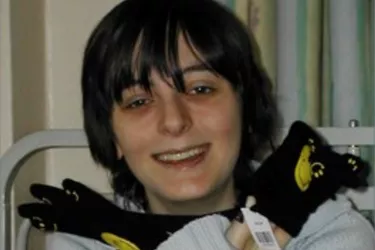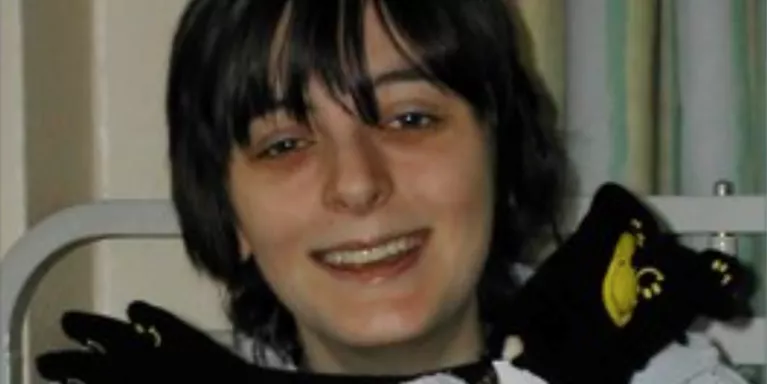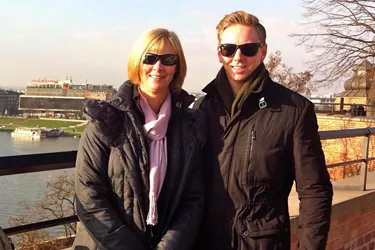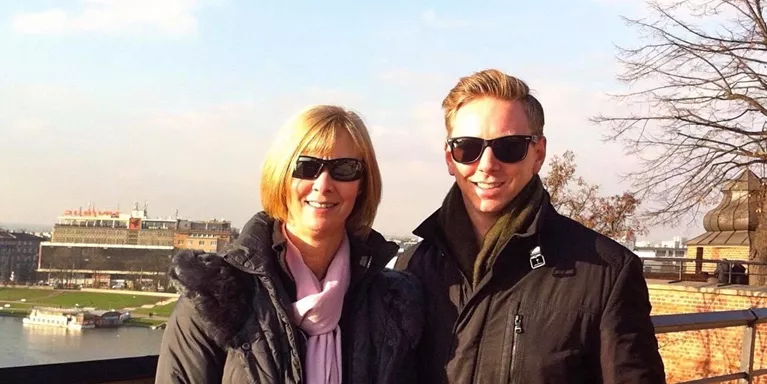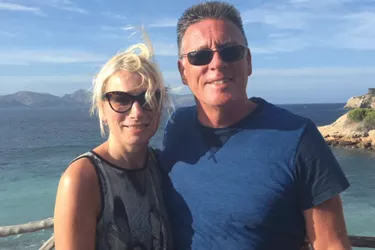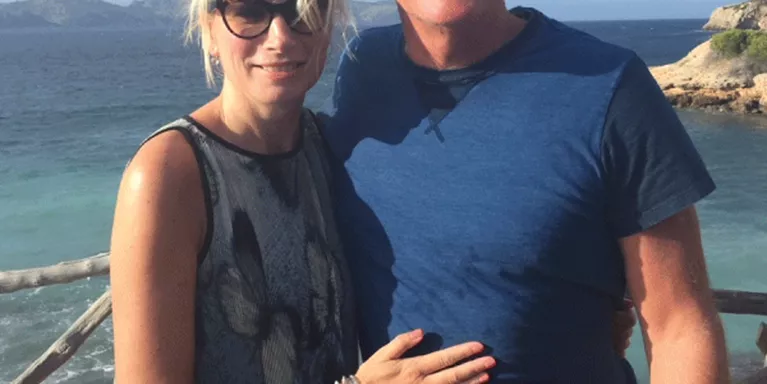"Jim tested positive for Covid. Physically he was well, but it affected his mental health"
Samantha blogs about coming to terms with the suicide of her beloved partner and the father of her baby boy.
Mind is committed to amplifying the voices of those who have lived experience of mental health problems and our blogs are one of the ways we do just that. Samantha’s story is powerful and important – but it may be a particularly upsetting read for many of us. So before you read on, please be aware that she discusses: new parenthood, intrusive thoughts related to cleaning, paranoia, bereavement by suicide, and struggling to access support. She mentions: bipolar disorder and PTSD.
At the end of Samantha’s story we’ve provided some information and useful links related to these themes.
The morning that I lost my partner and my 11-month-old baby boy lost his daddy is one that will live with me forever. The emotions of shock, hurt, anger and confusion made me wonder if I had ever even felt shocked, hurt, angry or confused before in my 32 years in this world.
Our plans for the future
Jim was diagnosed with bipolar affective disorder in 2002. His adult life had been a constant rollercoaster of ups and downs, although more recently the ups were much more visible than the downs. I guess for us we hadn't really been affected by the pandemic; we were in our little new family bubble of watching our baby grow and develop, were fortunate enough to be able to spend the weekends walking along the beach and were both key workers so following our usual working routine. We were happy with each other’s company and had so many plans for our future.
Together we had over 20 years of experience as mental health nurses. In our jobs we had a first-hand outlook of the impact the pandemic was having on mental health. Referrals were high as people with pre-existing mental illness deteriorated quickly while others with no previous history struggled with the isolation, losses of relationships, loved ones, jobs, routine and having any kind of normal from the lockdowns. Our jobs had changed significantly, as we went through 2020. We were no longer able to lead recovery groups, most contact was over the telephone and when we did see patients we would be head to toe in PPE which takes away from the warm, mutual approach we would always aim for when assessing an individual.
Jim's job had always been one of the most important things to him. He had worked hard to overcome his own battles with mental health and took pride in being able to use this to help and support others. As 2020 went by Jim began to feel that he was no longer making a difference at work due to there being so many changes and restrictions in how he was able to communicate with people needing mental health services. On the other hand, he was the happiest he had ever been, so in love with me and his baby boy. He had the family he had always dreamed of and never thought he could achieve.
Seven days before Jim’s death he had tested positive for Covid-19. Physically he was well but the illness affected his mental health. He was trying to follow government guidance and self-isolate in the bedroom of our small two-bedroom flat, taking cleaning guidance to extremes, and so anxious of passing on Covid-19 to me and our baby that he was fearful of being in the same room as us. Following the positive result he felt an overwhelming guilt of contracting the disease despite being so careful and he became increasingly paranoid that he had committed a crime in doing so, resulting in him trying to report himself to the police with a view he needed to go to prison.
When Jim’s mental health had declined previously he was able to work through this with the support from healthcare professionals, friends and family. Unfortunately, during the pandemic a lot of these things that had helped his mental health in the past weren't as accessible as they had been before.
Non-verbal communication
We have known for many years that much of communication is non-verbal. Extensive research has found that most of our communication is through body language. "Why could no one else see how unwell he had quickly become?" I asked myself over and over. I had called the GP three times in the two days before but nothing further had come from those telephone conversations. Was I over-reacting? After all I had been up for hours those nights with a teething baby. It struck me that I was the only one seeing his body language and the words he had said didn't truly match his body language.
There are many questions I have that I know I will never find the answers to. The only person that does know isn't here to answer them.
What I have learnt is that we have to be creative in supporting each other during the pandemic; whether this be using video calls, social distancing or PPE.
Shortly after Jim died I was diagnosed with PTSD and I now find myself starting my own recovery journey. I read somewhere 'suicide doesn't end the pain, it just passes it to someone else' and I couldn't agree more. I am still searching for a way of moving forward although what I do know is that I have made it this far because of family and friends. A few months in I said to my sister "nobody cares anymore, all the calls and texts of support have stopped". She asked me if I had reached out and contacted anyone. I realised people aren't mind readers, I needed to reach out to people and ask for that support. Now I have a daily socially distanced walk with a friend in the diary, which is certainly better than nothing.
The one thing that I promised myself the morning that Jim took his life was that I would do anything I can to help raise awareness for Jim and I hope that I can continue to make him proud every day.


Information and support
When you’re living with a mental health problem, or supporting someone who is, having access to the right information - about a condition, treatment options, or practical issues - is vital. Visit our information pages to find out more.
Share your story with others
Blogs and stories can show that people with mental health problems are cared about, understood and listened to. We can use it to challenge the status quo and change attitudes.












